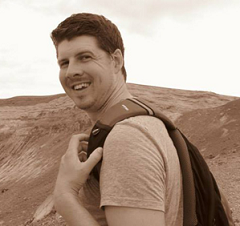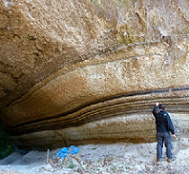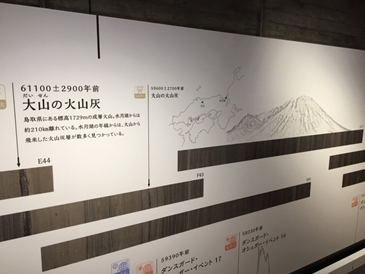About
Dr Paul Albert is an Earth scientist and UKRI Future Leaders Fellow (FLF) at Swansea University.
His research specialises in reconstructing volcanic eruption histories; specifically determining the source and timing of ancient widespread ash fall events. His UKRI FLF research concentrates on constraining the tempo and magnitude of explosive arc volcanism using ash layers preserved in long sedimentary archives (e.g., marine and lake sediment sequences), and facilitating long-term ash fall hazard assessments.
Prior to the UKRI FLF he held a Leverhulme Trust Early Career Fellowship at the University of Oxford (2015-2018), which exploited the unique volcanic ash fall record preserved in the annually laminated (varved) and intensely-dated sediments of Lake Suigetsu, Japan. This research has provided unrivalled insights into the tempo of ancient explosive eruptions at numerous Japanese volcanoes.
Prior to his Fellowship positions, he undertook PDRA positions at Swansea University (2014-2015), and the University of Oxford (2013-2014). The former position focused on the Holocene Tephrochronology of the Greenland ice cores and the identification of ash fall events associated with large caldera-forming eruptions.
He completed his doctorate in Geology at Royal Holloway University of London (RHUL; 2008-2012), this research was instrumental in refining the Tephrochronology of the Central Mediterranean. This research exploited detailed geochemical fingerprinting of volcanic glass (melt) compositions erupted at the different volcanoes of the region in order to better quantify eruptive events and the associated ash dispersals. Prior to his doctorate he completed an MSc in Quaternary Science at RHUL (2007) and a BSc in Geography at Swansea University (2005).



